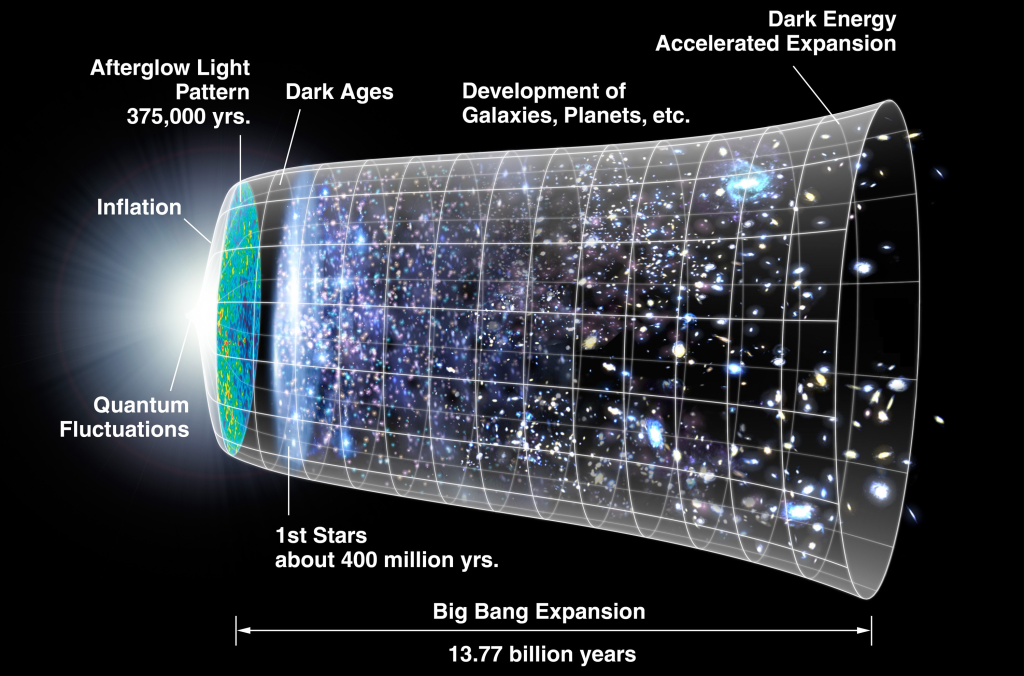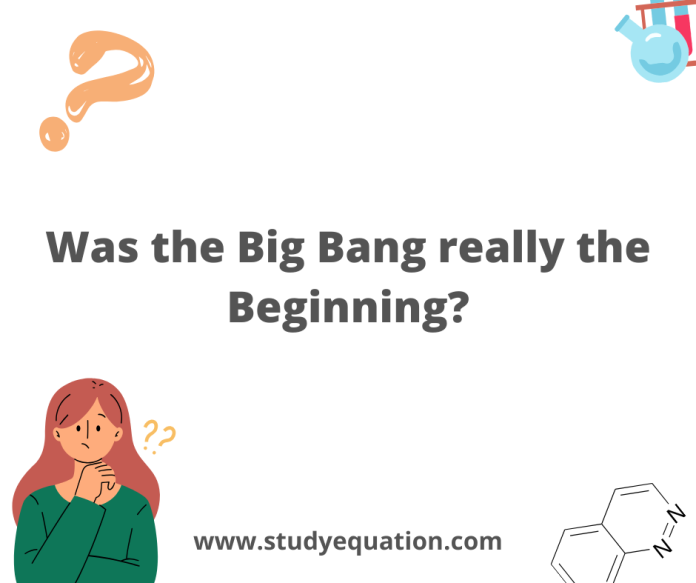Do you know about Big Bang? Have you ever gazed up in awe at the sea of stars swirling across the inky night sky and wondered what lies beyond our perception and reach? The universe, with its vastness, contains septillions of stars, galaxies, black holes, dark matter, and other mysteries. The sheer magnitude of it all is enough to evoke a sense of humility in anyone.

In these grand schemes, we may seem insignificant, yet within each of us burns a spark—a reflection of the very stardust that birthed galaxies. As we trace back the origins of our universe, we discover the echoes of our own existence entwined within it.
As we delve deeper into the study of the universe and its formation, it is impossible to rely solely on facts. The universe is estimated to be approximately 13.8 billion years old, making it incredibly ancient!
Table of Contents
From Singularity to Inflation: The Big Bang Theory of the Universe.
In 1927, astronomer Georges Lemaître, originally formalized the Big Bang Theory of the Universe, which is the prevailing explanation for the origin of our universe. According to the theory, the universe started as a singularity of immense density and temperature —all the matter and energy which exists within the entire cosmos(universe), crammed into this single point.

The singularity underwent rapid expansion, continuously stretching across space and time. Not an explosion as most of us perceive the Big Bang to be, despite its name. This led to a period, during which the universe expanded at an unimaginably rapid rate, known as cosmic inflation, setting the stage for its current vastness.
Beyond the Big Bang: The Aftermath
In the seconds’ aftermath of the cosmic inflation, the universe consisted of an extremely hot (18 billion degrees Fahrenheit or 10 billion degrees Celsius) mix of fundamental particles and light. This marked the beginning of an ongoing cosmic evolution.

As the universe cooled and expanded, the first atoms formed- the building blocks of everything we see. Gravity then pulled these atoms together, creating gas clouds, stars, and eventually, majestic galaxies. Over time, on some planets like our own, suitable conditions allowed for the emergence of life, a testament to the universe’s incredible journey.
Is the Universe Expanding? Evidence Supporting the Big Bang
The oldest known object in the universe is believed to be the cosmic microwave background radiation (CMB), a faint afterglow blanketing the entire cosmos, which is believed to be the echo of the Big Bang’s heat. This radiation provides valuable insights in support of the theory of the origin of the early universe.
Earlier on, the universe was thought to be static: neither expanding nor contracting. But in 1924 astronomer Edwin Hubble used a technique pioneered by Henrietta Leavitt to measure distances to remote objects in the sky. It was discovered that the farther away objects are from Earth, the faster they are moving away from us. This became known as Hubble’s law. This relationship was later used as evidence that the Universe is indeed expanding.
For example, In 1998, astronomers found that certain supernovae, bright stellar explosions, were fainter than expected. They deduced this could only happen if the supernovae had moved farther away from Earth, at a faster rate than predicted. Leading to the conclusion that cosmic expansion is indeed speeding up rather than slowing down.
Mysteries Abound
Despite the explanatory power of the Big Bang Theory, it falls short of explaining the formation of the singularity. From where it has been concluded the entire matter within the universe has been derived. Yet it is arguable against the theory of how something can form from nothing?!
Also, the theory could not shed light on the root cause- ‘If the Big Bang caused everything, what caused the Big Bang?’
The Future

The origin of the universe and the Big Bang Theory not only sheds light on the past but also opens up the potential for infinitesimal wonders yet undiscovered. The theory illuminates our cosmic origins, hinting at marvels beyond our understanding. Black holes, dark matter and dark energy are just a few enigmas.
Future research will surely uncover new surprises, as the journey of scientific discovery is never-ending. So join us in unravelling the secrets of our cosmos one chapter at a time.
Frequently Asked Questions
Q. What caused the Big Bang?
The question of what caused the Big Bang remains unanswered.
Q. Is the universe infinite?
the answer to whether the universe is infinite or not remains an open question that scientists are still trying to answer
Q. How old is the universe?
The universe is estimated to be approximately 13.8 billion years old.
Q. Will the universe expand forever?
The search results and scientific understanding indicate that the expansion of the universe is expected to continue indefinitely, leading to a future where galaxies move farther away from each other, and the universe becomes increasingly empty
Q. Is there life on other planets?
So far, the only life we know of is right here on our planet Earth.
Q. What is the ultimate fate of the universe?
The ultimate fate of the universe is a topic of great interest in cosmology. Based on current understanding, several possible scenarios have been proposed.
- One possibility is the “heat death” of the universe, where it continues to expand indefinitely, eventually reaching a state of maximum entropy and becoming cold and lifeless.
- Another scenario is the “Big Rip,” in which the expansion of the universe accelerates to the point where it tears apart all bound structures, including galaxies, stars, and eventually even atoms.
- A third theory is the “Big Crunch,” where the universe stops expanding and contracts back in on itself, leading to a reverse of the Big Bang.
However, it’s important to note that none of these theoretical endings for the universe are certain, and the ultimate fate of the universe remains an open question that scientists are still investigating


